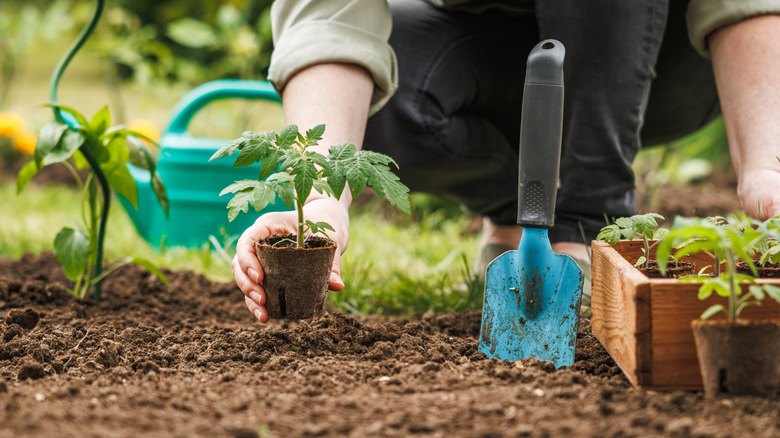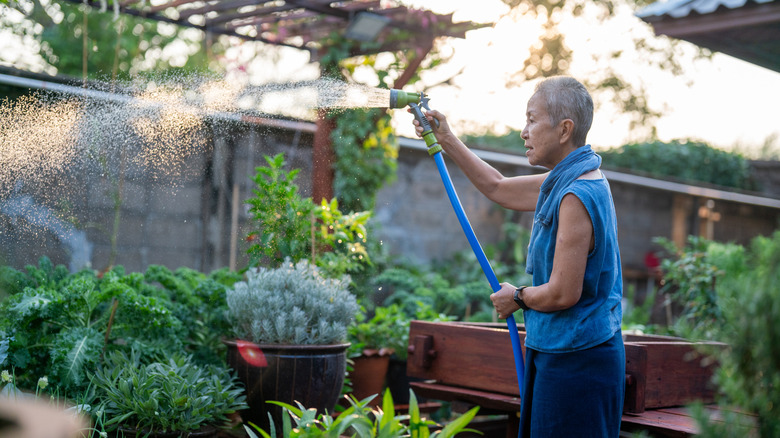This Is How Often You Should Water Your Vegetable Garden
It can be tempting to think that watering your garden every day gives you great vegetables, but even the easiest vegetables to grow have unique hydration requirements. To keep your crop bountiful and get to the bottom of the why and how of watering it, Food Republic spoke with Rachael Carter, owner and operator of Floraculture Gardens in Metro Detroit.
Carter tells her students to think about where the roots of the plant are when trying to determine how frequently and heavily to water them. While seeds and newly transplanted vegetables are close to the surface, Carter suggested "[watering] frequently, but not a lot, in order to keep the top of the soil wet." Once roots dig deeper and plants become more established, she said to "shift to watering every few days but a larger amount of water so that it makes it down to where the roots are." The goal is to wet the roots, not the plant itself, so failing to meet your vegetables' root systems where they're at means you're just wetting the dirt, not tending your garden.
Still, Carter quickly pointed out that watering schedules depend on your environment. Whereas a cooler climate can get away with only watering every few days, hot and windy areas suck moisture out of soil, so you may still need to water every day or every other day. Learning how to observe your plants and soil is a vital part of cultivating a delicious crop for your seasonal recipes.
How to tell when your vegetables need watering
Identifying when your garden needs watering isn't always as simple as looking for drooping plants and curling leaves. Some plants, like squashes, are dramatic and wilt in the hot noon sun before springing back to full life the next morning. Instead, Rachael Carter recommends checking out the soil itself and evaluating your plants' growth.
"Gardeners should look for soil that is pulling away from the sides of their beds or pots as a sign that the soil is too dry," Carter said. Soil tends to squeeze together and pack tighter when dry, then relax and expand when moist. This is an especially dangerous sign if you're growing any popular root vegetables, like potatoes or carrots, as they need enough moisture to develop their roots properly, but not so much that the ground becomes swampy. If you're unsure, scrape away the first half-inch of dirt from your garden, bed, or pot and see how moist the soil feels.
Carter also explained that buds falling from plants before they flower is a sure sign of dehydration stress. But even little signs like your plant staying alive but not growing can indicate you need to water more frequently. Whether you're growing apple trees in your garden or just keeping your tomatoes fresh and fungus-free, the vast majority of vegetable and fruit plants don't stall their growth unless they've been pruned or are under duress.


